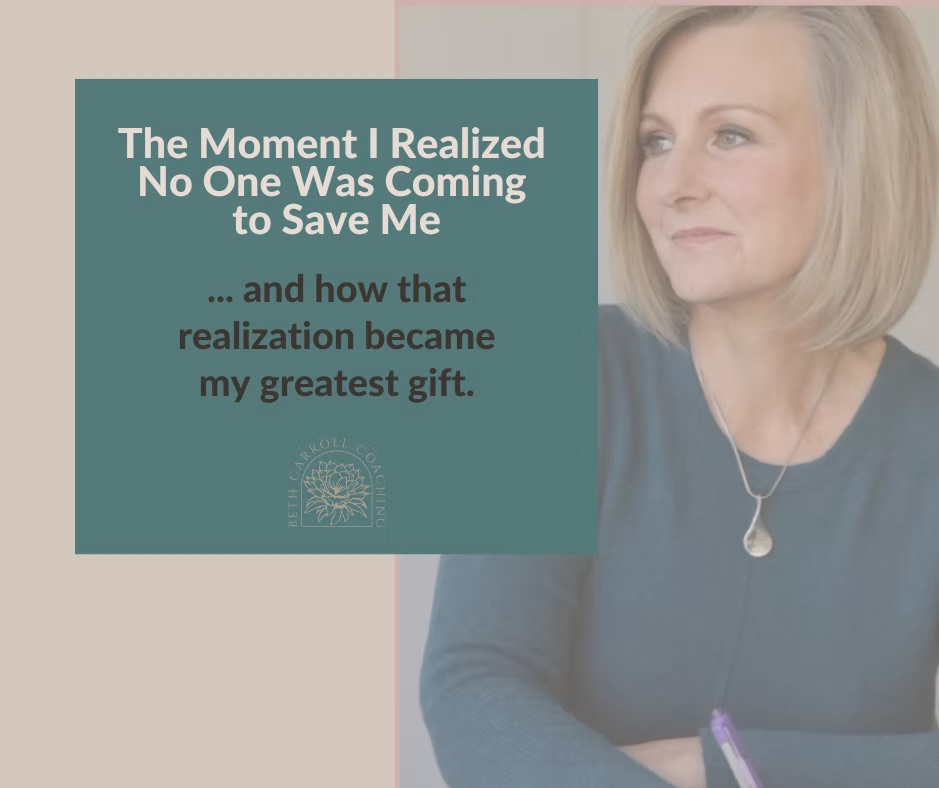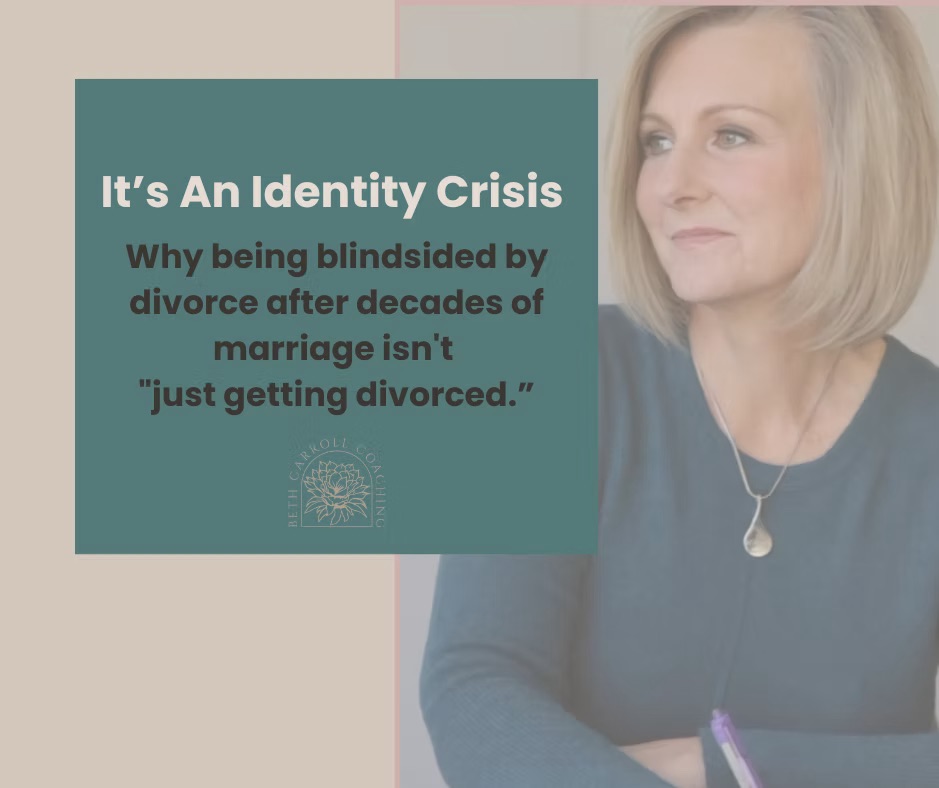When your spouse of decades chooses to walk away from your marriage, the path to healing can feel uncertain and overwhelming. In this blog, we’ll explore why establishing a no-contact boundary might be an important and defining step in your recovery journey.
When your spouse abandoned your marriage, they broke the trust and dreams you built together. In the aftermath, it’s easy to get stuck hoping for answers or trying to talk things through, but if he’s not taking responsibility for the pain he caused, staying in touch makes things worse for you.
Going no-contact isn’t about being mean or getting back at him. It’s about protecting your heart and giving yourself space to heal and rebuild your life.
No-contact means talking when it’s only absolutely necessary, like for children issues, legal proceedings, or financial necessities. If you don’t have children under 18, you may not need to keep up any type of communication and decide to work only through your attorneys. That can feel like a huge relief. You don’t have to live in fear of another upsetting message popping up on your phone or email. The space you give yourself by not having to worry about getting a call, email, or text from your ex is worth it.
Another big part of going no-contact is unfollowing or blocking your ex on social media. Seeing updates about his life only keeps you stuck, thinking about things you can’t change. Some people call this “pain shopping,” and it really does keep the hurt going during a time when you need to be focused on healing and moving ahead.
It’s also helpful to ask your friends and family not to tell you anything about your ex. Let them know you’re working on healing, and you need their support to protect your peace. It’s okay to ask for that. You deserve support as you figure out life after he’s gone.
When you stop all contact, you get more time and energy to focus on you. Little by little, the constant thoughts about him start to fade. One day, you’ll notice that you don’t think about what he’s doing anymore. Because now, your life is about you and what comes next.
You Have Every Right to Choose This Boundary
Sometimes people around us think we should stay friendly with our ex, no matter how the relationship ended. This can feel even harder when your ex was the one who left without warning because being left like this is a special kind of hell that many just don’t get.
Remember this – you have every right to protect your heart. Your ex made the choice to leave the marriage without asking how you felt about it. Now it’s your turn. Now, you get to make choices that help you heal.
Creating this boundary isn’t mean or selfish; it’s self-preservation. It means you are choosing to put your emotional wellbeing first, even if others don’t understand it. Family and friends do not get to weigh-in on this decision. You can simply let them know this is what you need, ask for their support, and keep moving forward.
There’s real brain science that explains why going no-contact with your ex can be so helpful after a painful breakup. When someone you love suddenly leaves after many years together, it can feel like a shock to your whole system. That’s because it is. Your brain and body respond to it like a trauma.
Staying in contact with your ex confuses your brain. It keeps the emotional bond active, even if the relationship wasn’t healthy anymore. That bond is strong because your brain remembers the connection and reacts like it’s a reward, kind of like a habit or even an addiction.
When you stop that contact, it gives your brain a chance to calm down and start building new, healthier habits. It’s like clearing a path in a new direction, instead of walking the same old trail that only leads to pain.
Staying in touch with your ex can make your body feel like it’s in danger, even if you’re not. Every text, call, or post can cause your body to release stress chemicals like cortisol and adrenaline. This keeps you stuck in “survival mode,” making it harder to feel calm or safe.
When you stop that constant stress, your brain can start building new habits like feeling more confident and learning to trust yourself. Over time, going no-contact helps your mood feel more steady. You’re no longer receiving messages that bring you right back to the pain. Your body can finally relax and that’s a big step toward peace and healing.
You may feel hesitation about establishing no-contact boundaries. Here are some common questions:
“Am I being too harsh?”
This isn’t about punishment; it’s about protection. Forgiveness can happen with or without renewed contact, and often develops more authentically when you’re not constantly dealing with new hurts.
“What will friends and family think?”
Those who support your wellbeing will respect your decision, even if they don’t fully understand it. Remember that you’re the one living this experience, not them. It’s up to you to decide what is in your best interest for your recovery.
“What if I regret cutting him off?”
Your boundaries can change as you start to heal. You don’t have to make big, forever decisions while you’re still in deep pain. Right now, the most important thing is giving yourself space to figure out what you need and what matters most to you before thinking about any kind of relationship with someone who hurt you and broke your trust.
Signs No-Contact Is Supporting Your Healing
How can you tell if this boundary is helping? After you go no-contact, you might start to feel calmer—like you don’t have to worry about surprise texts or calls from him anymore.
Here are some signs that it’s working:
- Your emotions feel more steady, not all over the place.
- Your thinking feels clearer, and it’s easier to make choices.
- You start remembering what you enjoy and care about.
- You begin to think about the future, just for yourself.
- You sleep and eat better as your body starts to feel safe again.
- You think less and less about the past or the marriage.
Creating a No-Contact Plan That Works For You
Everyone’s situation is different, especially if you have kids, a shared business, or other things that still connect you. Here are some simple steps to help you set boundaries that protect your healing:
- Figure out what’s really needed: Be honest with yourself. Do you have to talk because of legal stuff or parenting? Or are you reaching out because it’s a habit or brings comfort?
- Pick the best way to talk (if needed): If you must communicate, choose what feels safest. For many people, email is easier than phone calls. Some parents use court-approved apps to keep things clear and low-stress.
- Ask for help: If you need to exchange kids or items, ask a trusted friend or family member to help so you don’t have to see your ex.
- Make your own rules: Decide how fast you’ll reply to messages and how much time or energy you’ll give to thinking about what to say.
- Build your support circle: Choose a few trusted people to check in with when you feel like breaking your no-contact rule.
- Have a plan when you’re tempted: If you want to look at their social media or send a message, do something else instead. This is a great time to reach out to your support people.
These small steps can help you stay focused on your healing—and give you back some peace and power.
When No-Contact Isn’t Completely Possible
If you have to stay in contact, here are some ways to make it feel safer and less stressful:
- Keep it business-only: Talk only about what’s truly needed, like parenting or legal things. Don’t talk about feelings or the past.
- Stay calm inside: Try not to let their words or actions affect your emotions. Take a deep breath before you reply. You don’t have to react right away, and you don’t have to carry their drama.
- Pick specific times to talk: Don’t let communication pop up all day long. Choose a time that works for you, like: “Please text me between 5 and 6pm if it’s about parenting.”
- Use someone in the middle: Try using a co-parenting app, a mediator, or another trusted person to help pass messages so you don’t have to talk directly.
These tools help protect your peace and remind you that you get to choose what kind of contact is okay.
No-contact doesn’t have to last forever. It’s about giving yourself space right now so you can heal. As you grow stronger and build a new life, you might reach a point where talking to your ex doesn’t hurt anymore. What matters most is this: this boundary is here to help you heal. You get to decide if or when it changes based on what you need, not what other people think you should do.
How does this work for you?
As you think about your own boundaries, ask yourself:
- What kinds of talks or messages with your ex leave you feeling tired, sad, or upset?
- What makes you nervous or unsure about setting stronger boundaries?
- If you didn’t spend so much energy thinking about your ex, how could that help you feel better or heal faster?
- Who in your life truly understands and supports your need to protect your feelings right now?
- What is one small thing you could do this week to give yourself more space to heal?
Healing after being left is not simple or quick. Setting boundaries isn’t about being mean or punishing anyone. It’s a way to be kind to yourself. Your healing matters. You deserve to feel safe and supported, and creating space for that healing is both your right and something you can do for yourself.






